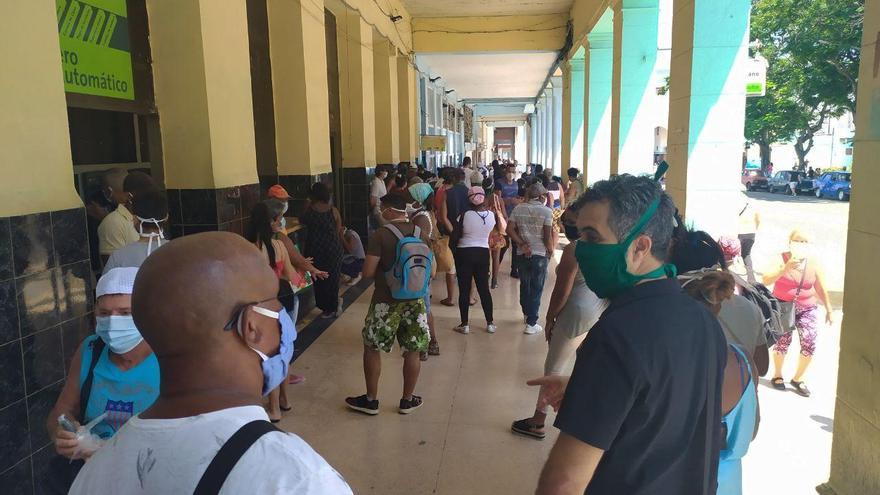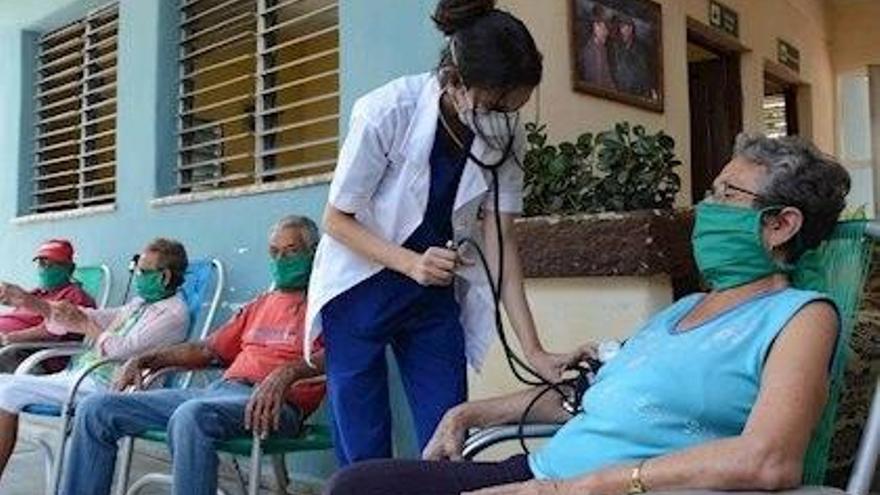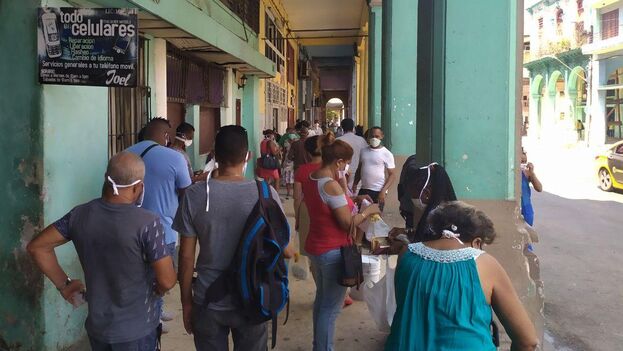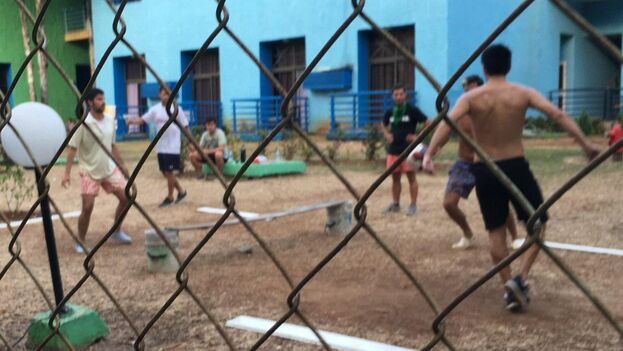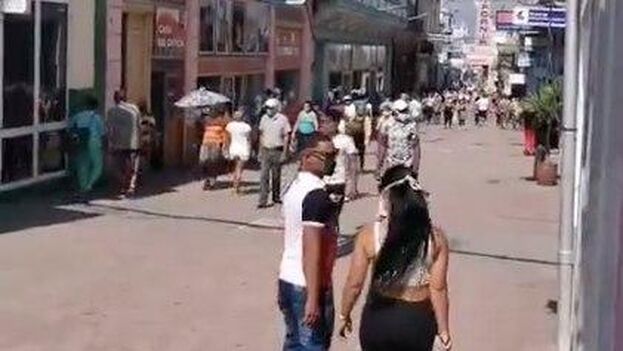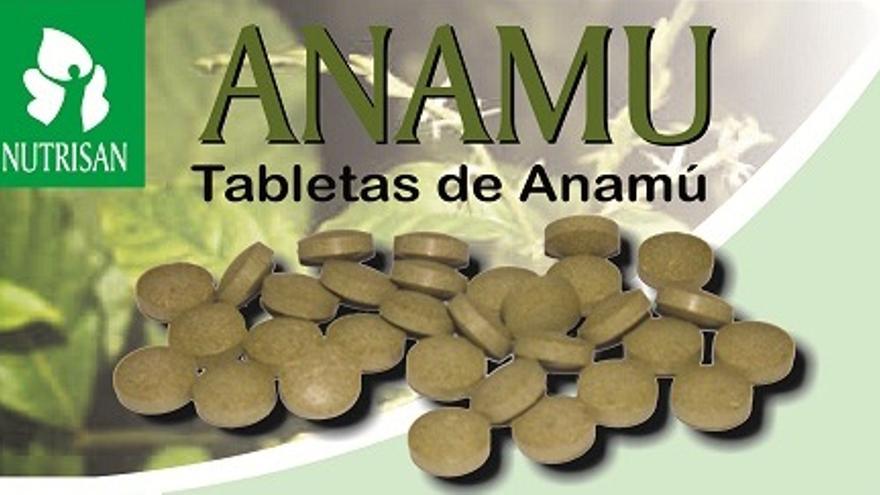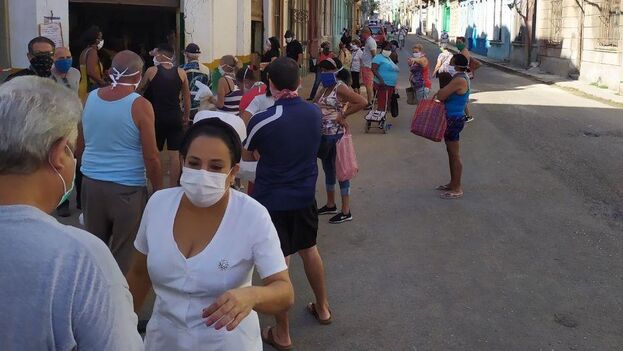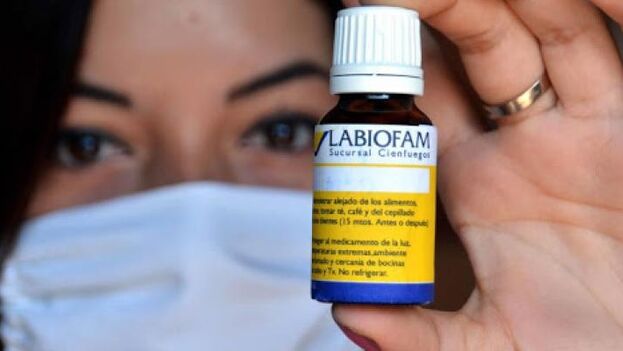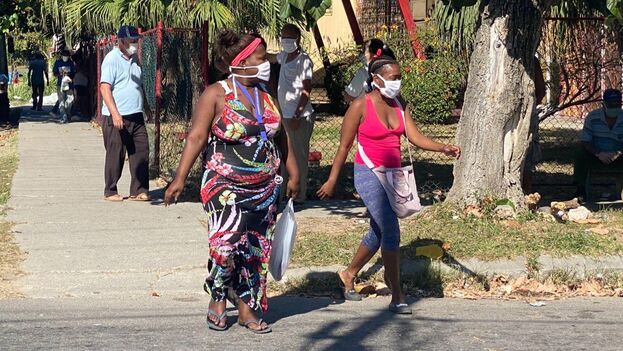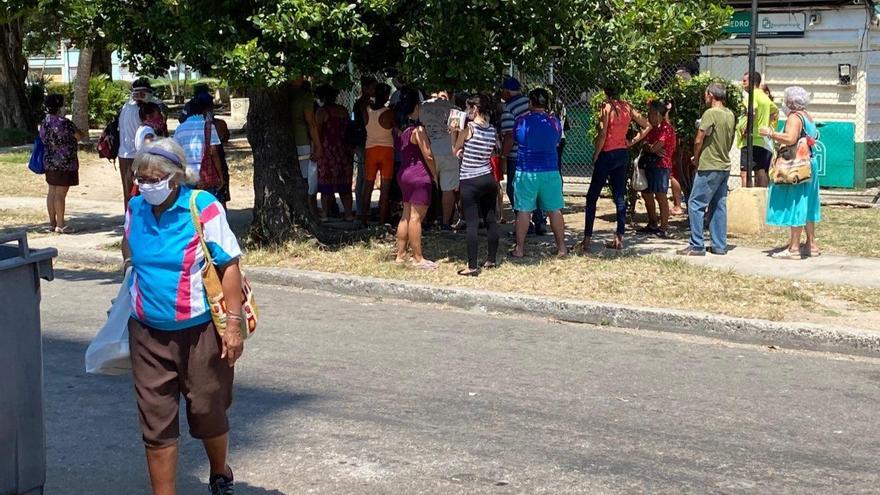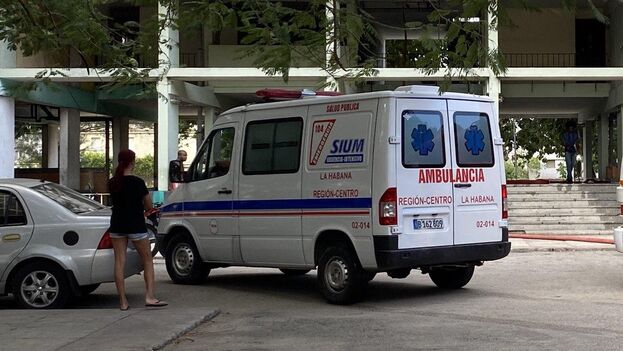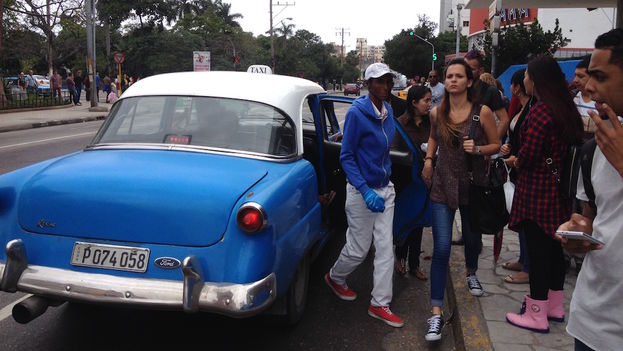The coexistence forced by confinement due to the coronavirus is not that easy to cope with for all families. In addition to the housing conditions, which are already difficult in Cuba due to the overcrowding and poor conditions of a large number of properties, there are also family conflicts that arise from forcibly spending more time together.
The problem is universal. Recently the United Nations Secretary General, António Guterres, called for measures to be taken to face “a shocking global spike in domestic violence” against women and girls which has occurred in recent weeks, due to the confinements decreed in the face of the pandemic in most countries. continue reading
“We know that confinements and quarantines are essential to reduce Covid-19. But they can cause women to be trapped with abusive partners,” said the UN official.
Mileydis, 46, her name changed for this story, has experienced it firsthand. This week she ended up at the Zanja Street Police Station because her husband beat her to the point of cutting her skull. The trigger for the fight was that “he wanted to see one channel on television and the children wanted to see another,” she recalls.
After the screaming, the blows came and the launch of a chair caused an injury that required six stitches. Upon leaving the nearest emergency room, she went to file the complaint. “When I arrived, the police at the entrance to the station told me that it seemed that someone had been ’throwing powders’ on the houses because cases like mine had been arriving all day.”
“When I leave for work these things do not happen because I am away for many hours but now you have to be looking at each other’s face all the time,” laments Mileydis, one of the few women who dares to file a complaint in Cuba, where male violence is not considered aggravating nor is there a specific law on it. “Very few complaints are registered and they are not classified by the gender of the victim,” explains lawyer Laritza Diversent.
In general, when women go to the police station to make complaints about violence, the agents hinder the process with the argument that it will be the word of one against the other, according to a report by Cubalex, the legal advice center directed by Diversent.
But there is another type of domestic violence. The sociologist Elaine Acosta warns that “it is carried out particularly on the most vulnerable groups: women, children — girls and boys — and the elderly.”
“The precarious living conditions of many homes, multi-generational coexistence, added to the stress of loss of income, situations of poverty, the excessive concerns, among others, have an impact on the increase in abuse and domestic violence,” acknowledges a researcher at the Cuban Research Institute, at Florida International University.
Although official statistics in Cuba on elder abuse are scarce and there are few studies on the subject, Acosta recalls that “the last National Survey on the Aging of the Population (2017) reported that 11% of people over 60 consulted, said they have been victims of situations of abuse by their cohabitants or those responsible for their care.”
Claribel, an 81-year-old woman who lives with her daughter and grandson under the same roof, lives on Salud Street in Central Havana. Before the pandemic, the old woman went out to do some shopping and talk to the neighbors, but since the first case of Covid-19 was detected on the Island, her daughter has not allowed her to go through the door to avoid the contagion.
“All the time they spend yelling at poor Claribel,” a nearby neighbor tells this newspaper. “They shout at her from the time she gets up until she goes to bed, because the house is very small and they are bothered by everything the old woman does. If she turns on the radio it bothers them, if she starts sewing it bothers them and we are afraid that they will end up hitting her.”
Until now, Claribel’s daughter worked Monday through Friday and the grandson was at school. “That family didn’t meet, but since they are all there under the same roof all day, it has become a madhouse,” explains the neighbor. “Even the family doctor had to intervene because the other day Claribel’s blood pressure went up amidst such screaming.”
The old woman’s daughter feels alone with her responsibility for her mother’s care and very tense with the whole situation. Until the end of March, she paid a lady to take care of her mother for several hours a day, but now the woman has not come any more for fear of catching the coronavirus, so all the household chores, the cooking and the care of the old woman have fallen on her shoulders.
In Cuba, “about 68% of the people who provide care for the elderly are women and the majority are over 50 years old,” says sociologist Elaine Acosta. This burden will involve “episodes of increased emotional and physical stress. In these circumstances, the type of care they can provide can be seriously affected.”
Mileydis has decided to take her children and go to her mother’s house to wait for the pandemic to pass. “I don’t want to go back to my house because with my husband there all day this is not going to end well, if the coronavirus doesn’t kill me he will kill me.”
________________
COLLABORATE WITH OUR WORK: In this time of Covid-19 crisis, 14ymedio could really use your help to keep the news coming. Please click on this link to support our work.
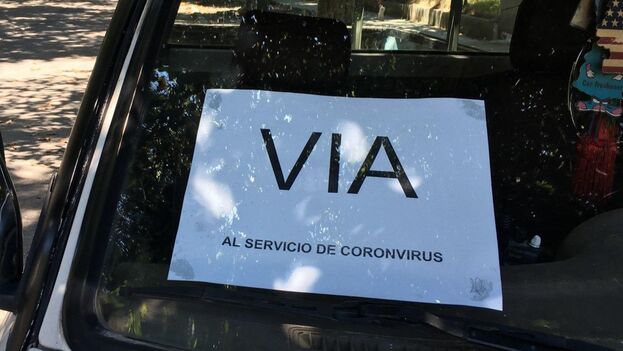
![]() 14ymedio, Havana, 9 April 2020 — With each official event or prominent date, it is common to see government vehicles on Cuban streets that have a “Via” pass attached to the windshield. This gives them the right to circulate without restrictions during events such as May Day parades, as well as during emergency situations caused by hurricanes or during carnivals. Now Covid-19 has readjusted the priorities and the signs they display mention the pandemic, but without changing the structure of the sentence.
14ymedio, Havana, 9 April 2020 — With each official event or prominent date, it is common to see government vehicles on Cuban streets that have a “Via” pass attached to the windshield. This gives them the right to circulate without restrictions during events such as May Day parades, as well as during emergency situations caused by hurricanes or during carnivals. Now Covid-19 has readjusted the priorities and the signs they display mention the pandemic, but without changing the structure of the sentence.
